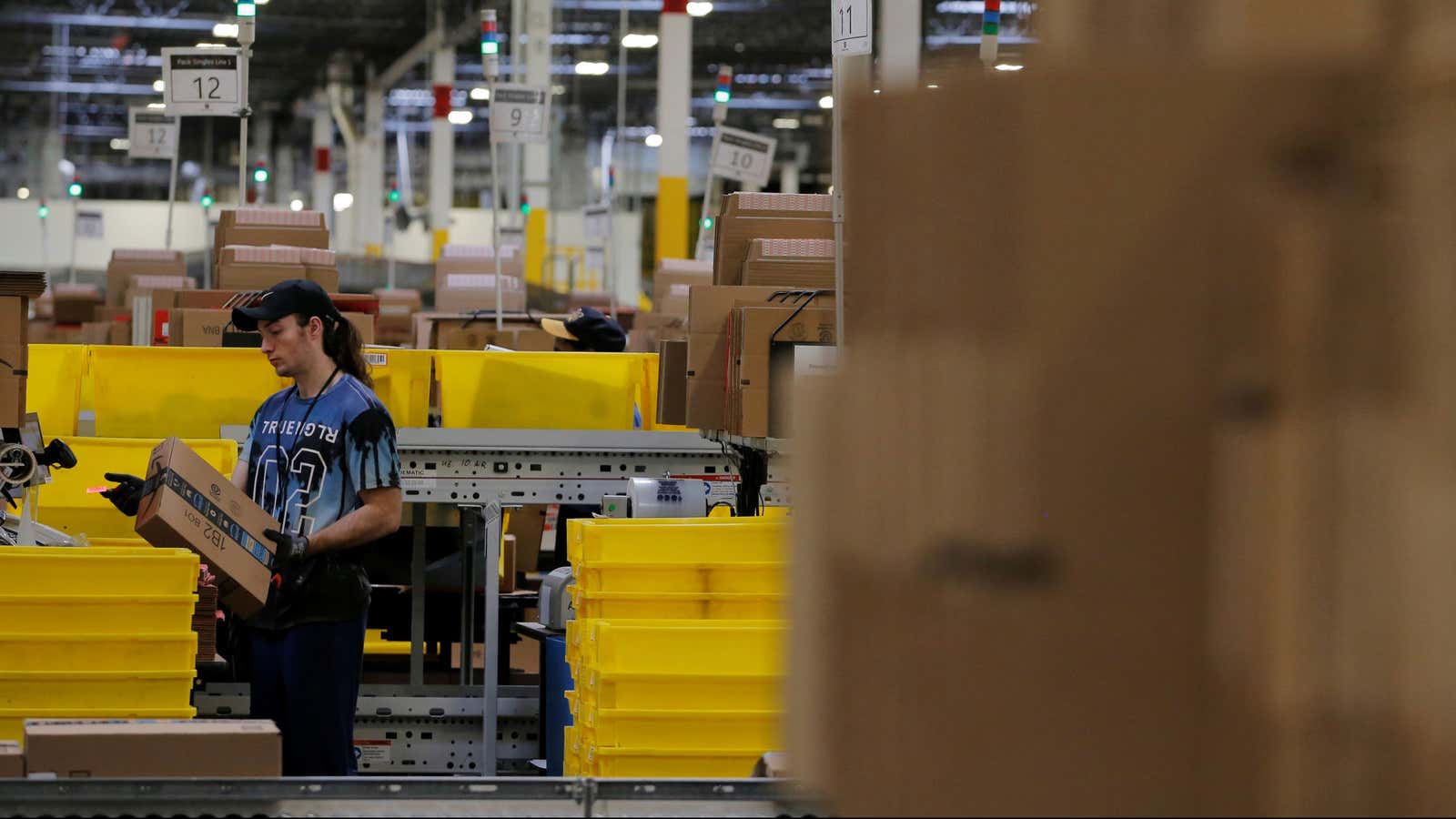Disillusioned with conditions at Whole Foods since Amazon bought it in 2017, employees at the grocery-store chain are seeking to unionize.
In early September, a group of Whole Foods employees emailed workers at all 490 stores asking for their support. They cited layoffs, job consolidation, and “meager” severance packages. “We cannot let Amazon remake the entire North American retail landscape without embracing the full value of its team members,” the organizers wrote. “The success of Amazon and WFM [Whole Foods Market] should not come at the cost of exploiting our dedication and threatening our economic stability.”
Amazon, as might be expected, is fighting back. On Sept. 26, Gizmodo reported on a 45-minute training video the company recently sent to “team leaders” at Whole Foods. It contains classic anti-union messaging. For example, the video states:
We do not believe unions are in the best interest of our customers, our shareholders, or most importantly, our associates. Our business model is built upon speed, innovation, and customer obsession—things that are generally not associated with union. When we lose sight of those critical focus areas we jeopardize everyone’s job security: yours, mine, and the associates’.
It also instructs managers:
You would never threaten to close your building just because associates joined a union. But you might need to talk about how having a union could hurt innovation which could hurt customer obsession which could ultimately threaten the building’s continued existence.
Telling workers that forming a union isn’t in their best interest, the company’s, or customers’, is a classic anti-union argument. So is suggesting that “speed,” “innovation,” and other key company values would suffer in the event that workers organized. Or that a union would stymie direct communication between workers and managers.
Amazon told Gizmodo it was “perplexed as to why Gizmodo takes issue with a company wanting to better engage its employees, train hundreds of managers to maintain an open and direct dialogue with associates, and create channels to drive innovation on behalf of the customer in a caring and inclusive environment.” The company added that the average hourly wage for a full-time US worker in one of its warehouses is $15 with benefits.
Amazon has prevailed over union drives for nearly two decades, employing a relatively consistent message. In January 2014, for example, a group of workers at a warehouse in Middletown, Delaware, voted 21-6 against joining the International Association of Machinists and Aerospace Workers. The vote made clear that workers “prefer a direct connection with Amazon,” an Amazon spokeswoman said at the time, adding, “Amazon’s culture and business model are based on rapid innovation, flexibility, and open lines of direct communication between managers and associates.”
Efforts by Whole Foods workers to unionize coincide with people on both the far right and far left criticizing Amazon’s labor practices. US senator Bernie Sanders on Sept. 5 introduced a bill that would tax employers whose workers rely on government assistance programs, such as SNAP. Several days earlier, conservative Fox News commenter Tucker Carlson sniped on a broadcast, “Jeff Bezos isn’t paying his workers enough to eat.”
